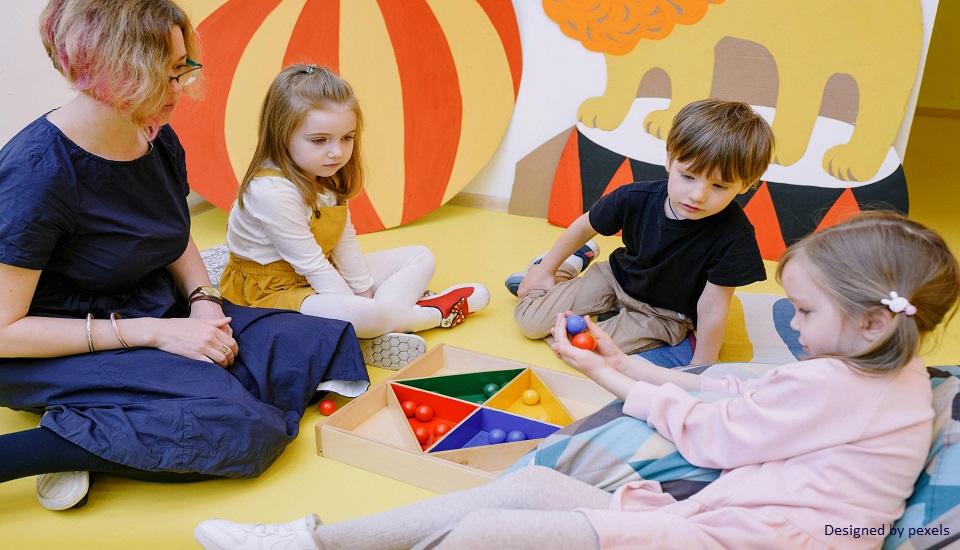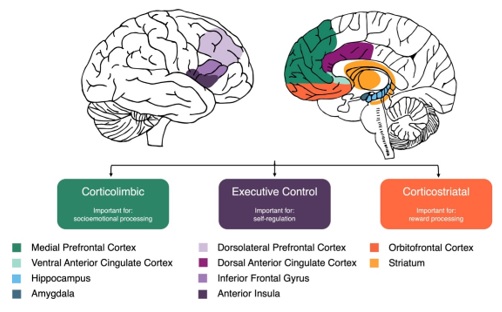Brain Development: Why Ages 2 To 7 Matter So Much For Kids?
29th October 2024
The first crucial stage of brain development starts around age 2 and ends around age 7. It offers a fantastic chance to set the groundwork for a comprehensive education for kids. Promoting the joy of learning, emphasizing breadth rather than depth, addressing emotional intelligence, and not viewing early childhood education as just a prelude to ‘real’ learning are four strategies to make the most of this crucial time.
Here is what you as an educator can do to foster brain development in children aged 2-7:

Source: srcd.onlinelibrary.wiley.com
1. Encourage Love Of Learning
Young children should be more interested in the learning process than in performance. Parents and teachers may highlight the benefits of trying new things and picking up new skills. Children must be taught that making errors is a natural and acceptable aspect of learning.
Establishing a development mindset—the conviction that skills and aptitudes are acquired via work rather than being inborn—should also be done at this time. Teachers should refrain from assigning labels to students or generalizing about their aptitude. Even flattering remarks like ‘You're so smart’ don't help. Instead, emphasize perseverance and establish secure learning environments. By focusing on the process rather than the outcome, we may inspire children to embrace learning.
2. Focus On Skill Development
Emphasizing the breadth of skill development over depth is one method to avoid concentrating on results during this stage of growth. Children can gain talents in several professions by being exposed to a wide range of activities. Now is the moment to teach them languages, math, art, science, music, reading, and sports. At some stage of life, concentrating on perfection in a particular activity could be appropriate.
However, those who initially learn to draw from a variety of disciplines and think creatively and abstractly are the ones who prosper in our quickly evolving environment. To put it another way, our society requires well-rounded people. Children between the ages of two and seven should pay particular attention to becoming well-rounded. Their growing brains are prepared to absorb a wide range of skill sets.
3. Do Not Overlook Emotion Intelligence
Yes, we do want kids to acquire the basics of arithmetic and reading. However, emotional intelligence shouldn't be disregarded. The benefits of education at this initial crucial stage of brain development ought to extend to social skills like cooperation, empathy, and compassion.
The first step toward empathy is admitting one's emotions. As a result, they advise assisting kids in this age range in first identifying their feelings and then explaining what caused them to feel that way. Teachers might begin posing questions that inspire students to think about the feelings of others once they have practiced categorizing emotions. Including kids in what adults do for others is one method to promote compassion.
4. Don’t Treat Them As Precursors To Real Learning
Instead of concentrating on outcomes, kids must enjoy the learning process. Both parents and teachers may stress the advantages of trying new things and picking up new skills. Children need to be taught that making mistakes is a normal part of learning.
A growth mindset, which holds that traits and skills are acquired by effort rather than being innately fixed, is crucial to cultivate at this age. Teachers should also avoid assigning labels to children or drawing general conclusions about their aptitudes. They ought to emphasize tenacity and offer secure learning conditions. They will develop a love of learning if you show that you are passionate about the educational process.
Bottom Line
From birth, children form connections in their brains via their daily experiences. They grow via positive relationships with their parents and caregivers and through using their senses to engage with their surroundings. A young child's everyday experiences determine which brain connections develop and which last a lifetime. Therefore, you as educators who have pursued early childhood education courses must play an important role in their relationships and discovery.
We believe education should be accessible to everyone. That’s why we don’t charge for our blogs. Find the right course that will help you in your career with us, contact us at - 1800–212–6400. You can mail us at act@asiancollegeofteachers.com.
Written By : Sanjana
Leave a Reply

